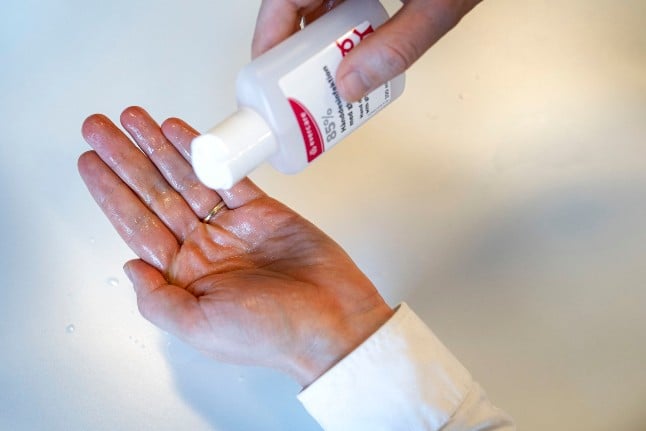CRIME
Burglar caught stealing hand sanitiser from Danish hospital
A man in Denmark broke into a hospital on Sunday night and attempted to steal 27 bottles of hand sanitiser, police in East Jutland have reported.
Published: 23 March 2020 14:31 CET

Hand sanitiser is in short supply in Denmark. Photo: Ida Guldbæk Arentsen/Ritzau Scanpix
The man, who was between 18 and 30 years old, set off a burglar alarm at Aarhus University Hospital shortly after 10pm and was accosted by hospital security staff shortly afterwards.
“The perpetrator shouted to the guard, that if he came any closer he would stab him with a knife,” East Jutland Police said in a press release issued on Monday.
The man then bolted, managing to make it to a small, dark-coloured car and driving off.
During his escape, however, he discarded the two bags he was carrying, which turned out to contain 27 bottles of hand sanitiser and two laptops.
The police said that the man was wearing tracksuit bottoms and a parka jacket.
Hospitals and doctors are currently being given priority access to hand sanitiser in Denmark, making it the one product which is no longer available in shops and supermarkets as a result of the coronavirus pandemic.
Url copied to clipboard!


 Please whitelist us to continue reading.
Please whitelist us to continue reading.
Member comments